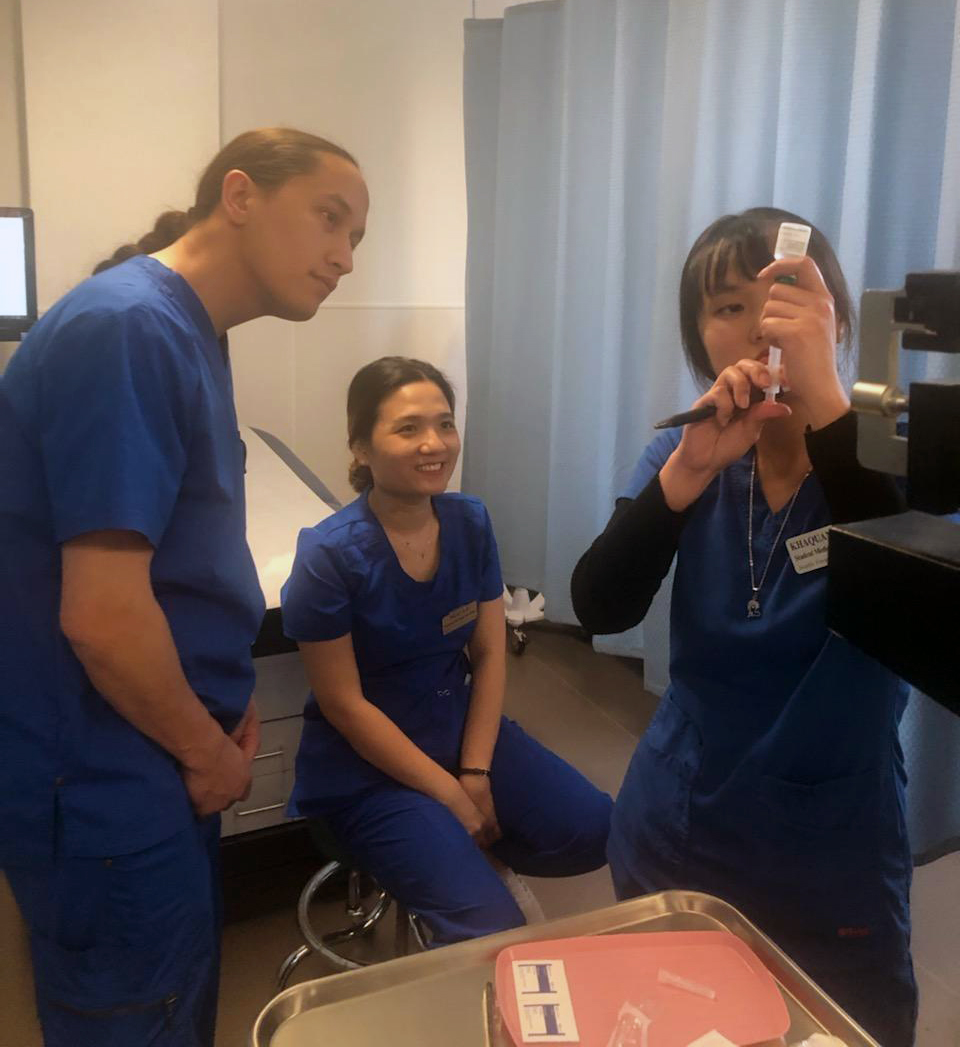New Seattle Central College apprenticeship opens doors to healthcare careers

Elizabeth Reece didn’t have many chances to attend college after the age of 18, when she married and had the first of her six children. Aside from briefly starting a program at Edmonds Community College, Reece had not considered a full career in medical care.
But when she heard about the new medical assistant (MA) apprenticeship program at Seattle Central College, and learned that it would cover her tuition, books, and pay her a salary with benefits, she knew it was the right program for her.
“I like helping people. I’ve been a caregiver my whole life,” Reece said. She hopes to use the apprenticeship program as a launching point to a career in nursing.
Since the fall of 2019, Seattle Central College has been the home of an experiment in medical services training. The new MA apprenticeship prepares students to support medical doctors and staff in patient care, providing class instruction, mentoring, and experience in the field.
Students in this apprenticeship attend school one day a week at Seattle Central College’s Health Education Center, at the renovated PacMed Tower complex on Beacon Hill. They spend the next four weekdays working in a Kaiser Permanente medical facility, under the tutelage of a medical assistant mentor.
All of their tuition and materials are covered, and students earn full pay and benefits for their work hours.
“Everything here goes hand in hand,” said Toya Moore, director of the MA program at Seattle Central College. “Students get the education they need and real life experience as well.”
After the students graduate from the program and pass a national certification exam, they are guaranteed a two-year job contract as a medical assistant. They also have access to financial support to pursue more training or to specialize in a different medical services field.
The program is the result of a partnership between Seattle Central College, Health Care Apprenticeship Consortium (HCAC), SEIU 1199NW and their Training and Education Fund, and Kaiser Permanente of Washington.
The idea for the program was first formed during a visit to Switzerland by Governor Jay Inslee and Kaiser Foundation Health Plan of Washington President Susan Mullaney, to learn more about that country’s workforce development practices. Switzerland, like many European nations, relies on the apprenticeship model to prepare much of its workforce.
The idea had also been part of the discussion at the SEIU Healthcare 1199NW Multi-Employer Training and Education Fund, an organization supported by the SEIU Healthcare 1199NW and the major regional health care systems in the Puget Sound area, including Cascade Behavioral Health, CHI Franciscan Health, Kaiser Permanente of Washington, MultiCare Health System, PeaceHealth St. Joseph, Swedish Edmonds, Swedish Medical Center, and UW Medicine.
Their discussion centered on how an apprenticeship model – with its tuition support, mentorship, and wrap around services – could be a way to address the shortage of trained health care workers.
At the heart of that discussion was also the fact that the health care industry in Washington state has a large gap in equity between front line workers and the ranks of management and leadership, with fewer employees of color in upper management.
“We really wanted to create a level field for everyone who is interested in the opportunity,” said Jiquanda Nelson, equity, inclusion and diversity & workforce development lead at Kaiser Permanente. “We want to break down systemic barriers.”
The fund partners formed a new organization, the nation’s first ever multi-employer, multi-labor Healthcare Apprenticeship Consortium, to work with educational institutions and health care providers to develop health care apprenticeships. The first of these programs is the medical assistant apprenticeship at Seattle Central College.
Laurie Hopkins, executive director of the SEIU Healthcare 1199NW Multi-Employer Training and Education Fund, said the consortium is developing a central sterile processing technician and a pharmacy technician apprenticeship program in 2020, jobs that are in high demand in healthcare. It is also looking at stackable certificates that will be available to graduates of both programs, to give them more skills and experience to advance.
“This will allow people who otherwise don’t have access to education to get it,” Hopkins said.
For more information about the MA apprenticeship, visit:
https://healthcareerfund.org/apprenticeship/